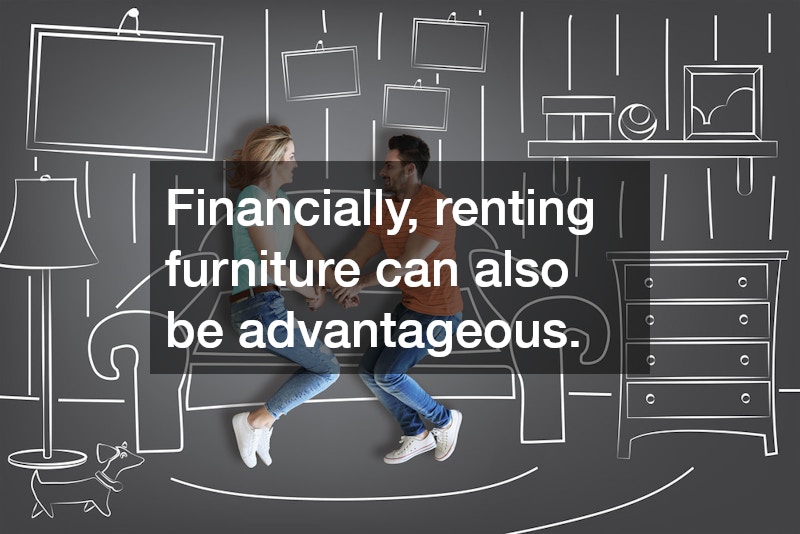Renting furniture is a flexible solution that has gained popularity in recent years, especially among those who frequently relocate due to work or personal preferences. A significant advantage of furniture rentals is that it allows you to select from a wide range of styles and trends without a long-term commitment. This flexibility can be particularly appealing in today’s fast-paced world where one’s needs and tastes can change more frequently.
Another benefit of renting furniture is the relief from maintenance responsibilities. When you rent, the renting company usually takes care of any necessary repairs or maintenance issues, saving you time and potential costs. This peace of mind is valuable, making furniture rentals an attractive choice for busy individuals who don’t want the added responsibility of upkeeping furniture.
Financially, renting furniture can also be advantageous. Although over the long term owning furniture might be cheaper, for those who require furniture for a short period, rentals can offer a more affordable and convenient solution. Additionally, renting can free up cash flow that might otherwise be tied up in the purchase of expensive pieces, allowing the money to be used in other areas like travel or investing.
The Benefits of Buying Furniture
When you purchase furniture, you are making a long-term investment that can provide a sense of permanence and stability. Owning furniture can be particularly important for individuals who have decided on a permanent or long-term residence. It allows them to align their belongings with their personal taste and lifestyle, creating a home that feels truly their own.
Another advantage of buying furniture is the potential for personalization and customization. When you own your furniture, you have the opportunity to refurbish or modify pieces according to your preferences. This can be a creative outlet for many, as well as an opportunity to reduce costs by reinventing existing items instead of buying new ones.
Financially, owning furniture may have its advantages, especially in the long run. Although the initial investment is higher, it may prove to be cost-effective over several years as the furniture remains yours beyond the recovery of its purchase price. This contrasts with renting, where payments continue as long as the furniture is kept without ownership benefits ever being realized.
Which Option is More Sustainable?
Sustainability considerations are increasingly important in today’s world, and this extends to making decisions about renting versus buying furniture. Renting furniture can potentially be more sustainable if it involves high-quality pieces that get circulated and reused among multiple renters. This reduces the demand for new furniture production, which in turn saves resources and reduces waste.
On the other hand, buying furniture also has its sustainability benefits if approached wisely. Purchasing vintage or second-hand items can breathe new life into older pieces and reduce the need for resource-intensive new manufacturing. Moreover, buying high-quality furniture made from sustainable materials can offer longevity and durability, minimizing the need for replacement.
Both renting and buying can be made more sustainable by choosing furniture from companies that prioritize eco-friendly practices. Whether you rent or own, looking for certifications and materials that emphasize reduced environmental impact is key. In this sense, the choice between renting or buying may come down to personal preference and commitment to sustainability initiatives.
Determining whether to rent or buy your furniture ultimately depends on your unique circumstances, including lifestyle, financial situation, and personal values. For those who move frequently or are in temporary residencies, furniture rentals offer unmatched flexibility and convenience. The ability to change styles without commitment and the ease of having maintenance covered makes rental appealing.
Conversely, if you’re settled in one location and have an eye for long-term style consistency, investing in furniture may provide greater satisfaction. The personalization and potential financial benefits of ownership can be significant, especially for those who take pride in crafting a home environment that reflects their personal taste.
While both renting and buying have their advantages, your decision might be influenced by environmental considerations and the specific furniture market. Ultimately, weighing the pros and cons outlined can help you make an informed choice that aligns with your needs and values. Choose wisely based on what aspects such as flexibility, cost, sustainability, and permanence mean to you.





